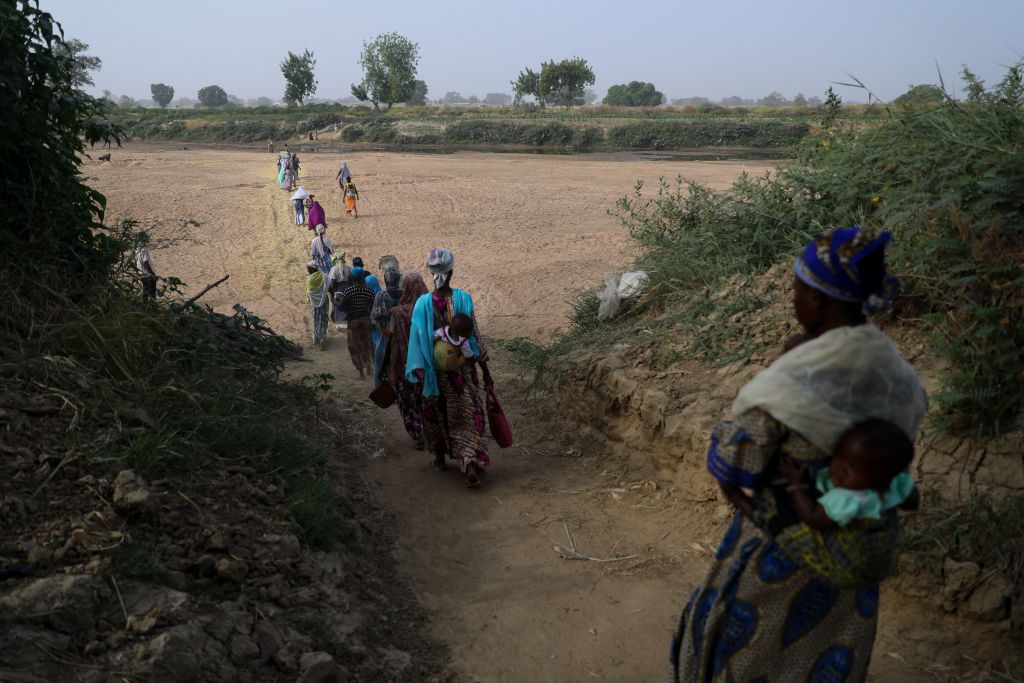ADF STAFF
Alima never again expects to live in her Burkina Faso home.
Standing near a refugee settlement in Ghana, she can see her native hamlet over a dry riverbed. Alima said she left with her children last year after gunmen raided their settlement and killed two watchmen.
“We are staying here for now,” Alima told Agence France-Presse (AFP). “There is no security over there.”
Since January, terrorists in Burkina Faso have attacked civilians and pro-government militias in the Boulgou Province, forcing thousands of people to flee to Ghana, where many settlement camps lack sufficient food, water and shelter.
In response, Ghana deployed 1,000 Special Forces troops to its northern border in early April amid worries that violent extremist groups in Burkina Faso are seeking to expand their influence and territory.
“They are killing people and the people are running, and I also ran,” an anonymous Burkinabe man told Ghana’s JoyNews. “I came here to save my life and my family.”
In rural areas along the border, displaced Burkinabe often cross the dry riverbed into Burkina Faso by day to tend to their farms and send their children to school. Before nightfall, they return to Ghana, according to AFP.
Many Burkinabe are entering Ghana close to Bawku, about an hour’s drive from the border. In Bawku, a 40-year dispute between ethnic Kusasi and Mamprusi over a chief’s position has escalated into a war.
Bawku Mayor Amadu Hamza was worried about weak security at unmanned entry points.
“The challenge we have is that there are a lot of loopholes where there could be permanent posts,” Hamza told Voice of America in early April. “However, the government of Ghana for one or two reasons have not committed enough resources to be able to have those permanent soldiers policing those areas to prevent the Jihadists” from entering.
Extremist violence is rare in Ghana. Between 2016 and 2021, Ghana recorded two terrorist attacks in which three people were wounded and no one died, according to the digital platform worlddata.info.
But in February, suspected terrorists tried to blow up a bridge in Bawku. Ghanaian Defense Minister Dominic Nitiwul said the attack proved that the threat of terrorism spreading into Ghana is real.
“So, the security agencies are working within Bawku and its precincts with the mindset that if we do not stop what is happening in Bawku now, we risk the situation where Ghana can be thrown under terrorist attacks,” Nitiwul said in an AFP report.
Hamza said the ethnic conflict and terrorist threats from Burkina Faso has driven unemployment in Bawku, leaving young people vulnerable to recruitment by extremist groups. Despite the conditions, not many people are leaving.
Along the border, Ghanaian community leader Abdullah Zakaria said locals routinely give the Ghanaian Army information about suspicious activities, but anxiety is high.
“We are fearful they are going to come over here,” Zakaria told AFP. “This is going to get worse. This is not going to stop.”

